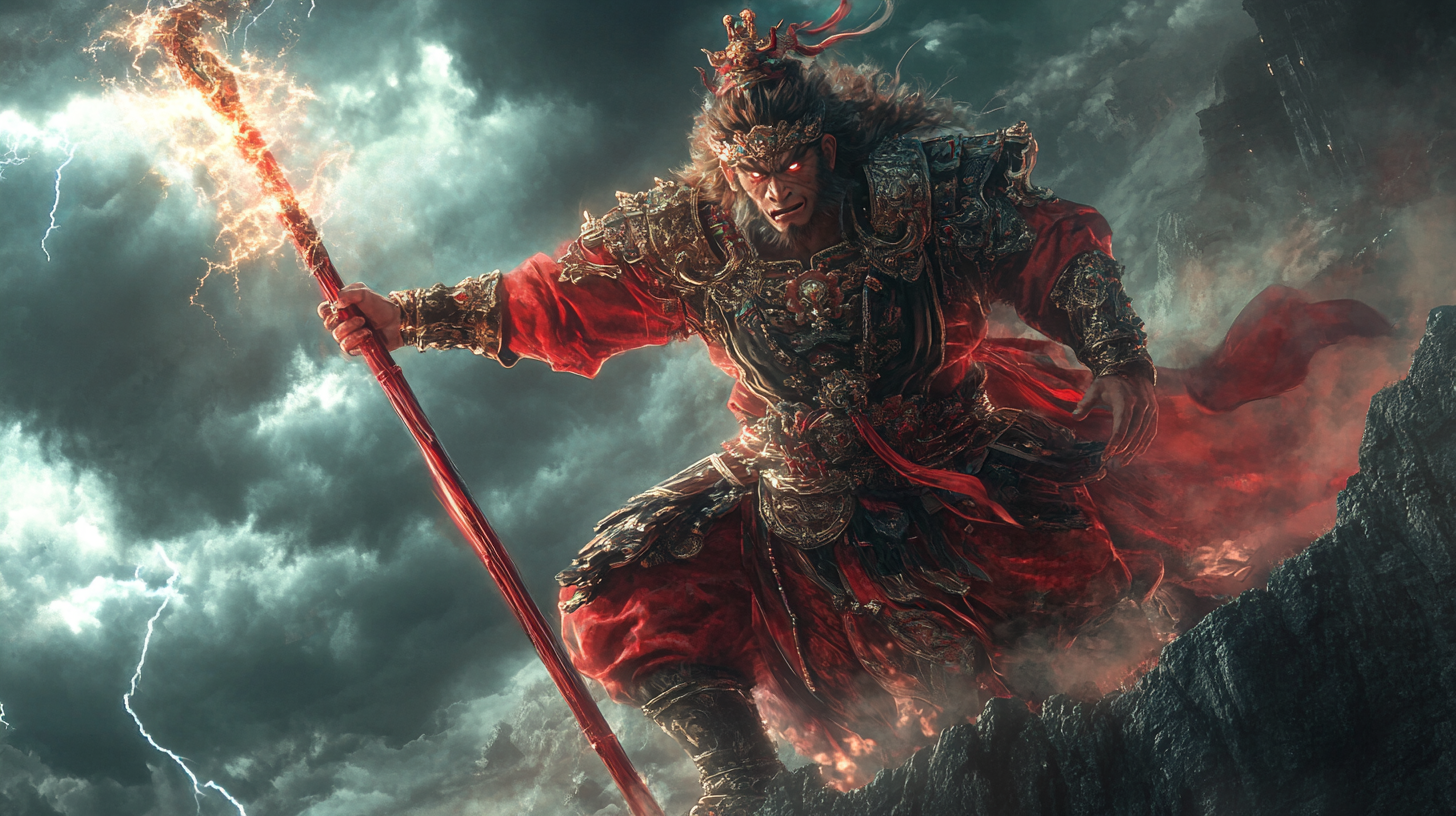Black Myth: Wukong – A Blockbuster Chinese Game That Divided the Internet26 August 2024 By Johnber  NewsTogether

Black Myth: Wukong, the most successful Chinese video game of all time, has sparked both massive excitement and controversy since its release. Within 24 hours of its launch, the game sold over 4.5 million copies and became the second most-played game on the streaming platform Steam, with more than 2.1 million concurrent players. However, the excitement surrounding the game was soon overshadowed by a contentious issue: the company behind Black Myth sent a list of prohibited topics to players who were livestreaming the game. This list included avoiding discussions of "feminist propaganda, fetishization, and other content that instigates negative discourse," which ignited a heated debate online.
What Is Black Myth: Wukong About?
Black Myth: Wukong is a single-player action game where players assume the role of "the Destined One," an anthropomorphic monkey with supernatural abilities. The character is based on Sun Wukong, or the Monkey King, a central figure in the classic 16th-century Chinese novel Journey to the West. This novel is a cornerstone of Chinese literature, blending mythology with elements of Confucianism, Taoism, and Buddhism. The story has inspired numerous films, TV shows, and anime, making it a significant cultural touchstone.

Why Is Black Myth a Huge Hit?
The game's success can be attributed to several factors. First, its announcement in August 2020 generated significant anticipation, leading to a strong following. As China's first AAA game—a title typically reserved for big-budget productions by major companies—it boasts high-end graphics, sophisticated game design, and immense hype. Furthermore, China's gaming community, the largest in the world, played a crucial role in its success.
The game’s appeal also extends beyond China. According to Haiqing Yu, a professor at Australia’s RMIT University specializing in China's digital media, Black Myth is not just a Chinese game targeting the Chinese market; it resonates with players globally. This has fostered a sense of national pride within China, with the game serving as a vehicle for showcasing Chinese culture to the world.
The game has also had a tangible impact on tourism. The Department of Culture and Tourism in Shanxi Province, where many locations featured in the game are located, released a promotional video, sparking a surge in visits to these real-world attractions. This phenomenon has been termed “Wukong Travel.”
Why Has Black Myth Sparked Controversy?
Despite its success, Black Myth: Wukong has faced criticism, particularly regarding the list of topics that players were advised to avoid during livestreams. These topics included "feminist propaganda," which some took as a vague and troubling directive. Reports have circulated about previous instances of sexist behavior from employees at Game Science, the studio behind Black Myth. Other prohibited topics included politics, Covid-19, and China’s video game industry policies.
The directive, sent by co-publisher Hero Games, was seen by many as an attempt to stifle free speech and censor discussions, especially outside of China. Some content creators refused to review the game, while others deliberately defied the restrictions. For instance, a Twitch streamer titled their stream "Covid-19 Isolation Taiwan (Is a Real Country) Feminism Propaganda," directly challenging the list of "Don'ts."
In China, the situation took another turn when social media platform Weibo banned 138 users who violated its guidelines while discussing the game. The state-run Global Times reported that these bans were due to users straying from game-related discussions and instead engaging in what were deemed irrational comments, including “gender opposition” and personal attacks.
Has the Controversy Affected the Game’s Success?
Despite the controversy, Black Myth: Wukong has continued to enjoy overwhelming success. The game generated $53 million in presales and set a new record for the most-played single-player title on Steam. On platforms like Weibo, Reddit, and YouTube, the game is widely celebrated, and many believe the controversy has been blown out of proportion.
Professor Yu suggested that the list of prohibited topics was likely an attempt by the company to avoid trouble with Chinese authorities, rather than a direct order from the government. She described the company’s actions as a “politically correct gesture” intended to protect itself rather than a genuine attempt to censor speech.
In conclusion, while Black Myth: Wukong has faced its share of controversy, it remains a groundbreaking success, showcasing Chinese culture on a global stage and marking a significant milestone for China’s video game industry.
Keywords
anthropomorphic: attributing human characteristics to non-human entities, such as animals or objects.
concurrent: occurring or existing simultaneously or side by side.
hype: intense and exaggerated publicity or promotion.
supernatural: relating to forces or entities beyond the natural world, often involving the mystical or magical.
literature: written works, especially those considered of superior or lasting artistic merit.
censorship: the suppression or prohibition of speech, public communication, or other information.
mythology: a collection of myths, especially one belonging to a particular religious or cultural tradition.
prohibit: formally forbid something by law, rule, or other authority.
controversy: prolonged public disagreement or heated discussion.
success: the accomplishment of an aim or purpose.
content: the topics or material dealt with in a book, speech, or work.
streaming: transmitting or receiving data over the internet in a continuous flow, especially audio or video content.
cultural: relating to the ideas, customs, and social behavior of a society.
tourism: the practice of traveling for pleasure or the business of attracting, accommodating, and entertaining tourists.
impact: the effect or influence of one person, thing, or action on another.
All rights reserved by 비투게더
*printable 자료와 문제를 원하시면 아래 링크로!
|